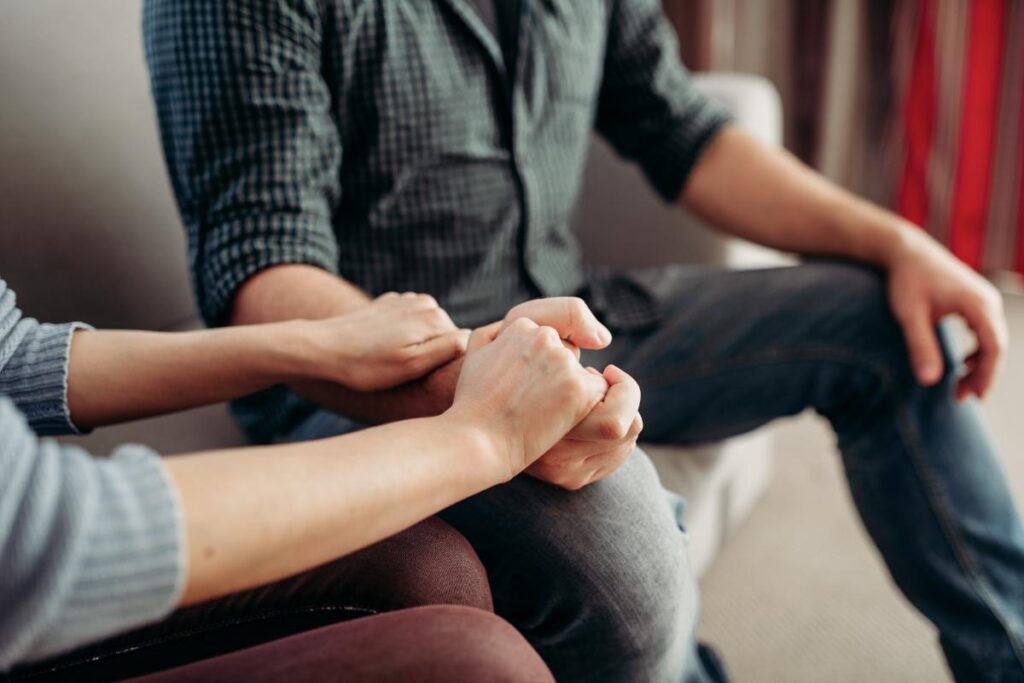Prescription drug abuse is increasingly common across the United States and New Hampshire. Unfortunately, many people take Vicodin and other opioids for routine surgery, accidents, or chronic pain. Opioids are highly addictive and can easily lead to abuse and addiction. Knowing how to help someone struggling with painkiller addiction is one of the first steps toward a loved one’s recovery.
If someone in your life is looking for painkiller addiction treatment in New Hampshire, we can help. A Better State provides comprehensive outpatient treatment for Vicodin addiction and other opioids. Our trauma-informed, holistic treatment programs help clients uncover and treat the root cause of addiction. Call us now at 781.412.1488 to learn more about Vicodin addiction treatment programs.
Is My Loved One Addicted to Vicodin?
A person taking painkillers like Vicodin experiences a stop of pain receptors in their brain. This means they relieve mental and physical pain and discomfort. For some, Vicodin’s mental and emotional numbing is used to self-soothe mental health conditions. At least half of people today living with addiction have co-occurring mental health conditions. If someone you love is taking Vicodin, they may develop a dependency. Signs of Vicodin abuse and addiction include:
- Memory loss
- Speech problems
- Loss of coordination
- Dilated pupils
- Depression
- Anxiety
- Aggression
- Mood swings
- Frequent headaches
- Trouble sleeping
- Digestive issues, such as constipation
- Bouts of dizziness
- Confusion
- Taking pills with alcohol
- Mixing pills
- Drug-seeking behavior
- Self-harm
The more often someone takes Vicodin, the more they need to feel the same effects. This is called tolerance. Like other opioids, Vicodin tolerance builds quickly, leading many to abuse the medication. Crushing, snorting, or taking more Vicodin than prescribed are all signs of abuse. Getting multiple prescriptions, stealing pills, or combining drugs with other medications and alcohol are all signs it’s time to seek painkiller addiction treatment.
Helping a Loved One Who Needs a Vicodin Rehab Program
Like all opioids, Vicodin is highly addictive. If someone you love is abusing Vicodin, know they are not alone. It’s always best to educate yourself about treatment options and addiction. Because addiction is a disease, treatment is highly individualized. Some of the best ways to support your loved one include:
- Provide non-judgmental support
- Stay curious
- Attend family therapy
- Help your loved one stay accountable
- Seek your own mental and physical health support
Addiction can strain any relationship. It can be challenging for loved ones to understand addiction, and it can be hard for someone living with addiction to ask for help, communication, and accept support. Experiencing extreme guilt and shame is common with Vicodin use and other drug addiction. This is even more common among people living with mental health conditions. It’s essential to never use accusatory language or place blame on a loved one for abusing Vicodin. It’s equally important not to blame yourself and work with your therapist and support system during a loved one’s recovery.
Learn More About Vicodin Addiction Treatment in New Hampshire
Knowing how to help a loved one dealing with Vicodin addiction can be hard. If you or someone you love is struggling, the team at A Better State is here to help. With daytime and evening intensive outpatient programs (IOPs) or partial hospitalization programs (PHPs), our holistic clinic is here to help uncover and treat addiction causes, including mental health conditions. Our clinic specializes in trauma-informed treatment for:
- Substance abuse
- Addiction
- Anxiety
- Depression
- Post-traumatic stress disorder (PTSD)
With a range of evidence-based and alternative therapies, clients at A Better State receive the care they need without compromising their schedules. Our accessible clinic makes it easy for the whole family to attend therapy together for the best recovery.
Learn More About A Better State’s Vicodin Rehab Center
Contact A Better State now at 781.412.1488 to learn more about how our team can help your loved one with starting Vicodin addiction treatment.


